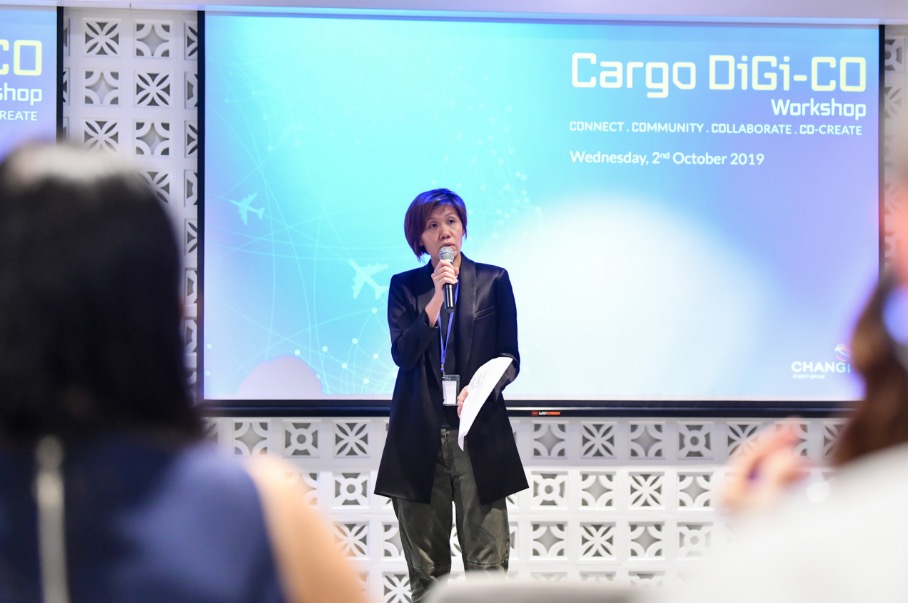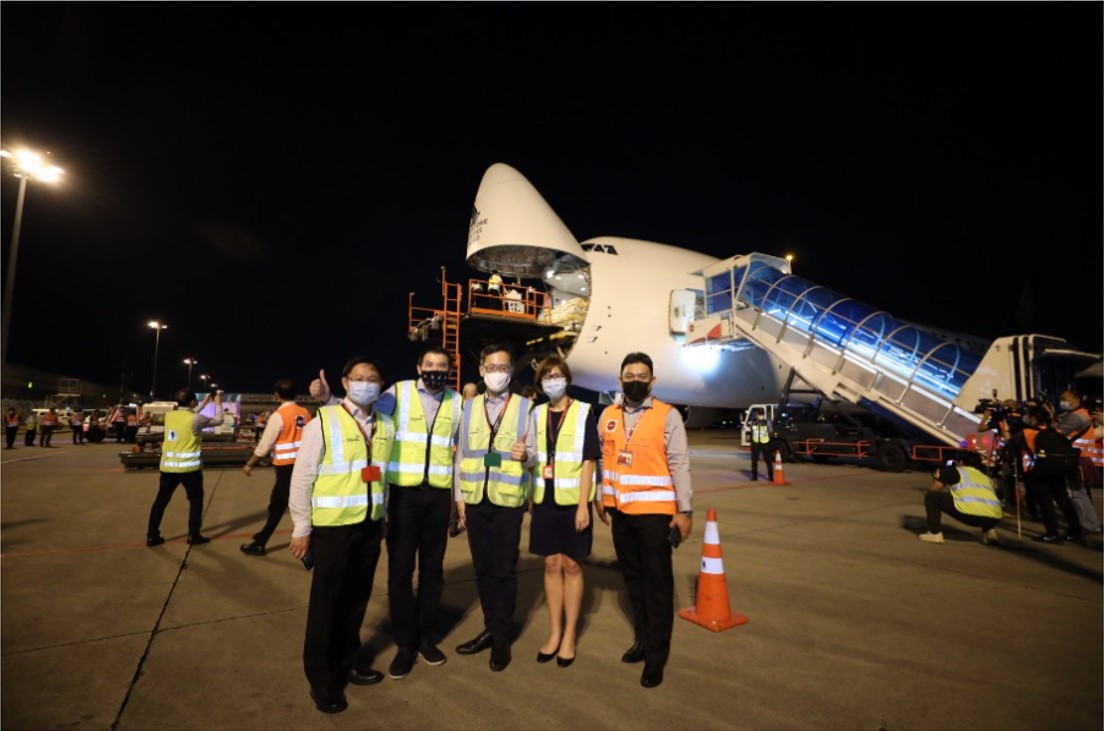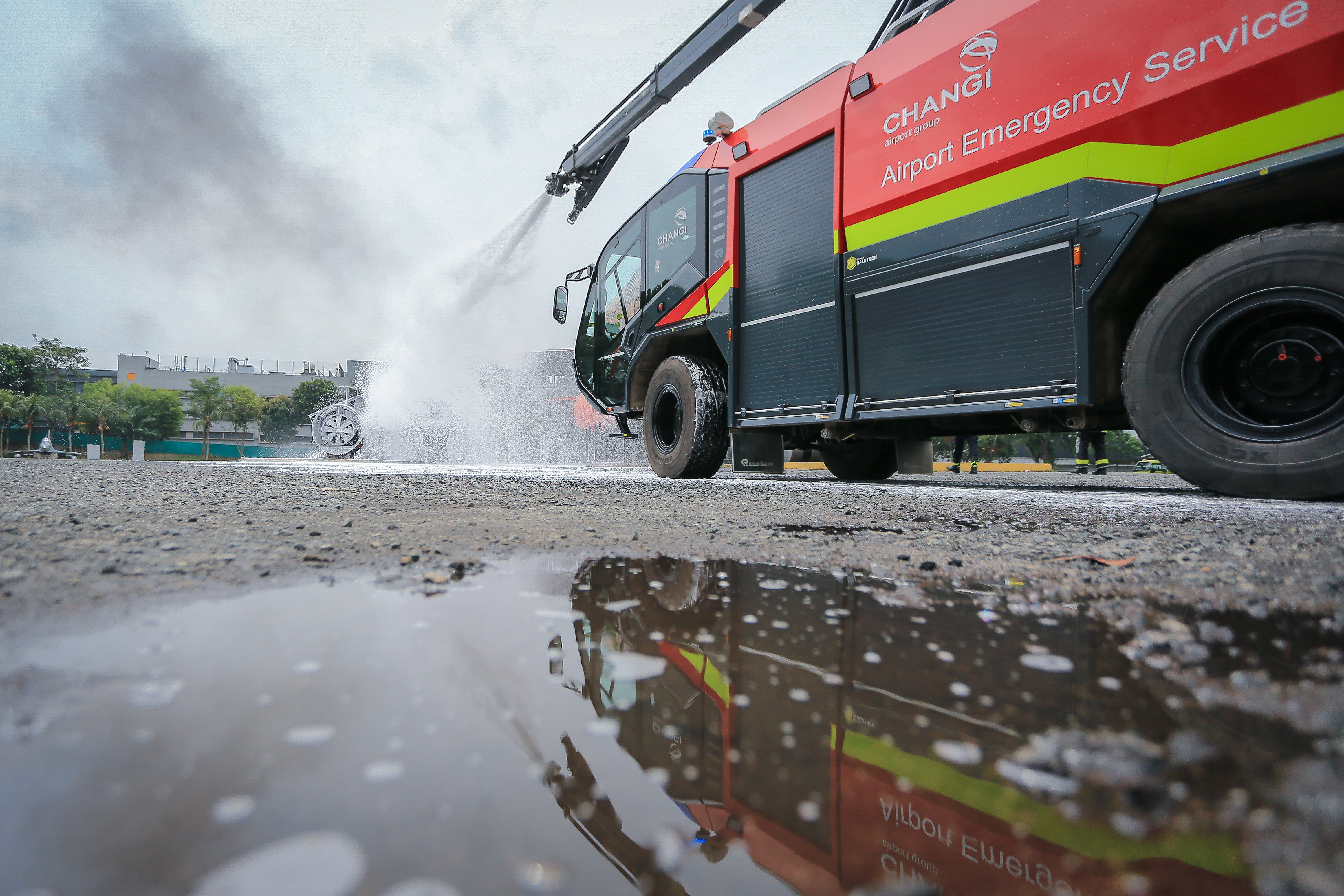





May 2021



Jaisey speaking at the inaugural Cargo DiGi-CO Workshop in 2019
While Covid-19 has decimated the demand for air travel, Changi Airport’s air cargo volumes have been relatively resilient last year. As at the end of 2020, weekly cargo flights at Changi have more than tripled compared to end-2019, to over 950 flights.
To understand the challenges that airlines had to overcome to alleviate the air cargo capacity crunch, Changi Journeys (CJs) sat down with Jaisey Yip, General Manager, Cargo and Logistics Development (CLD), to find out more.
CJs: Can you tell us more about the role of Changi Airport Group’s (CAG) CLD team?
The CLD team is responsible for securing Changi’s air cargo connectivity and developing the business to future-proof our air cargo hub. The team is also involved in the planning of our future air cargo logistics park.
We work very closely with airline partners, industry stakeholders and government agencies to anchor Singapore’s air cargo connectivity and capacity, as well as to jointly develop Singapore’s handling capabilities of key cargo verticals, including but not restricted to pharmaceuticals, perishables and e-commerce.
CJs: What was Changi’s air cargo situation in 2019, and how has that changed in 2020?
2019 had already been a challenging year for the air cargo industry, with trade protectionism and the cyclical downturn of certain industries such as semiconductors. The disruptions to the global airfreight industry and supply chains in 2020 however, was unprecedented.
With global travel restrictions and lockdown measures brought on by Covid-19, Changi’s air cargo traffic, like most other airports, was challenged by both airfreight capacity constraints and weak global merchandise trade.
CJs: So what did airlines have to do to overcome these challenges last year?
Airlines moved swiftly to increase their utilisation of freighter flights and brought older freighter aircraft out of retirement. When both measures still proved to be insufficient, airlines then repurposed some of their Passenger Aircraft for Cargo Conveyance only (PACC). To increase the overall aircraft payload, some airlines even removed all the passenger seats in their cabin.
Between April and December 2020, more than 50 passenger airlines have operated PACC flights into Singapore, transporting cargo to about 90 cities globally. Cargo ferried on PACC flights made up almost a quarter of Changi’s overall cargo throughput last year.
Cargo carriage in the passenger cabin is not without its own complexity. Airlines had to observe restrictions to cargo types, as well as new handling procedures. They also had to work closely with their cargo handlers, SATS and dnata, to formulate Standard Operating Procedures (SOPs) for PACC operations at Changi, to ensure that all industry and local guidelines have been complied with.
CJs: What were the challenges involved in transporting Covid-19 vaccines, and how did the Changi air cargo hub coordinate these deliveries?



Jaisey with CAG and SATS reps receiving Singapore’s first batch of vaccine
Singapore was the first air hub in Asia to receive the Pfizer-BioNTech vaccine, which require deep-frozen storage conditions. To ensure that these important shipments are transported in a safe, reliable and agile manner, Changi recognised early on that there was a need for a combination of infrastructure, equipment, people, standards and connectivity, and above all, community collaboration.
To enhance the readiness and preparedness of our local air cargo community, CAG and the Civil Aviation Authority of Singapore (CAAS) jointly established the Changi Ready Task Force, a joint public-private taskforce comprising 18 members from across the Changi air cargo community including government agencies, forwarders, airline partners and cargo handlers, with the aim of supporting the timely and effective distribution of vaccines.
The Task Force not only created greater transparency in Changi’s cold chain handling capabilities and capacity, it also introduced enhanced SOPs to expedite the processing of vaccine shipments, and mitigate exposure to temperature deviations, resulting in improved end-to-end shipment visibility.
All these efforts ensured the smooth transportation and handling of Covid-19 vaccines to and through Singapore, enabling our country to successfully import its first batches of Pfizer-BioNTech and Moderna vaccines. We have also supported the transportation of Covid-19 vaccines into Australia and New Zealand through our hub. In steady state, we strive to establish ourselves as a regional distribution centre of Covid-19 vaccines.
CJs: How is Changi positioning its air cargo hub in the new normal?
Building air cargo hub resilience and agility will remain our work priorities this year. My team will also continue to work with airline partners to restore and strengthen Changi’s air connectivity.
In boosting resilience and competitiveness of the Changi air cargo hub, we will continue to work alongside our air cargo community to accelerate industry digital transformation, such as advancing the Changi Air Cargo Community System (ACCS) roadmap. Launched in June 2020, the Changi ACCS is an open ecosystem of collaborative and community-based applications underpinned by an information-sharing platform that aggregates data from all parties involved in the cargo handling process, to optimise operational efficiencies and enable end-to-end digitisation of the air cargo supply chain.
Separately, Covid-19 has brought about new multimodal solutions to mitigate capacity shortages and uncertainties. Such solutions look to be here to stay, and overall, I think the attractiveness and relevance of Singapore as a logistics hub would be further enhanced with stronger multimodal connectivity.
Going forward, as ASEAN gradually resumes production and export activities, Singapore should cement ourselves as a logistics hub in areas such as regional procurement, distribution and fulfillment centers for global manufacturers and e-commerce players. At the same time, we should continue to pursue higher handling standards in areas such as cold chain.
Other Articles

How CAG staff stay in touch during a time of crisis
During this work from home period, internal communications within CAG has taken on new importance, with the company utilising multiple channels to broadcast news and engage employees.

GetIt by Changi Recommends clocks 100,000 orders
Sensing strong demand from the local alcohol market segment in the current landscape, GetIt swiftly filled the gap and grew to become one of Singapore’s largest online alcohol delivery retailers.

A look into the future of Changi’s Airport Emergency Service
More sophisticated technology and a workforce well-trained to handle such equipment – these are some glimpses into what the future of Changi Airport’s emergency service looks like.

